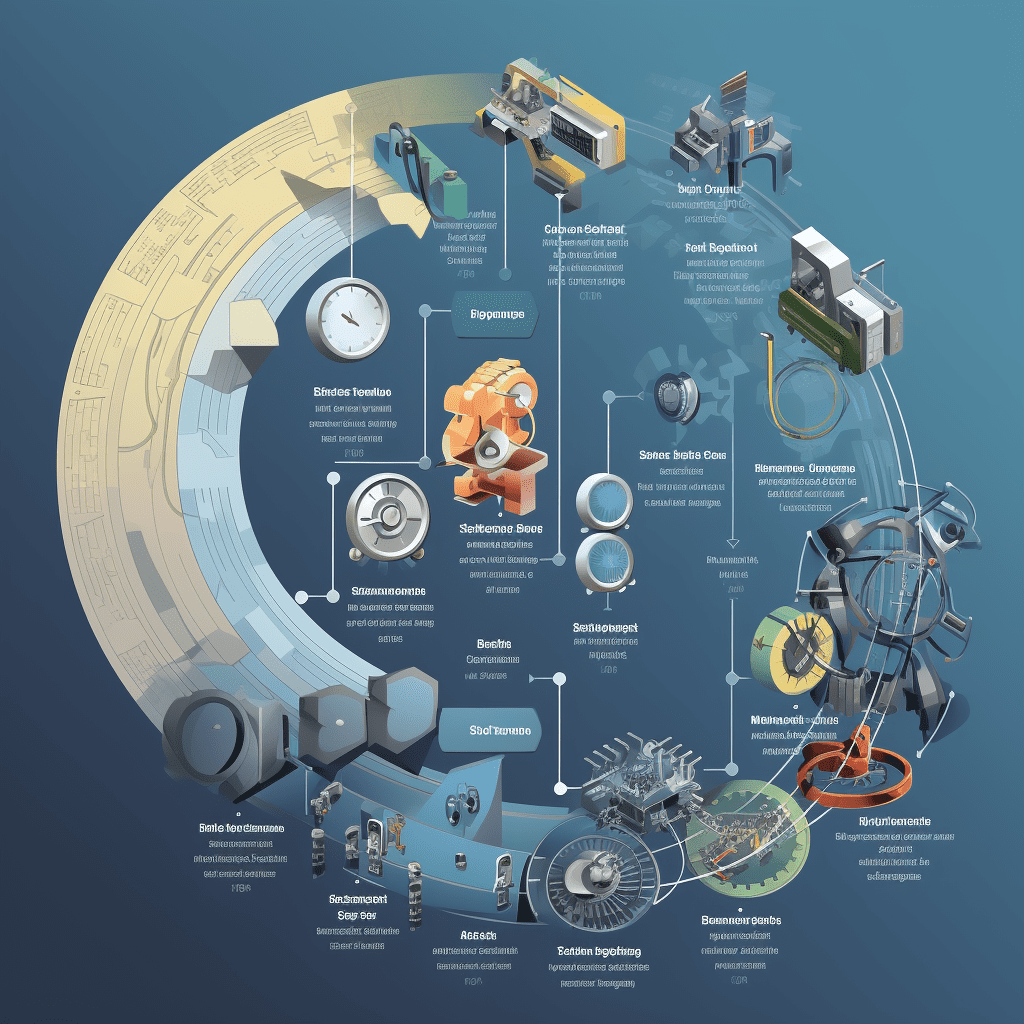
Exploring the Diverse Applications of Deep Learning in Artificial Intelligence
Understanding Deep Learning in AI
Deep learning is a subset of artificial intelligence (AI) that involves training large neural networks to recognize patterns in data. These networks, with their multiple layers of interconnected nodes, can learn to perform tasks such as image and speech recognition, natural language processing, and decision-making with remarkable accuracy.
Common Applications of Deep Learning in AI
Deep learning has found widespread applications across various industries due to its ability to handle complex tasks and make sense of large volumes of data. Some common applications include:
Image Recognition and Computer Vision
Deep learning is widely used in image recognition and computer vision tasks such as facial recognition, object detection, and autonomous vehicle navigation. These applications rely on convolutional neural networks (CNNs) to process and interpret visual data, enabling machines to understand and respond to their environment.
Natural Language Processing (NLP)
In the field of NLP, deep learning techniques are employed to analyze, understand, and generate human language. From chatbots and virtual assistants to language translation and sentiment analysis, deep learning models can comprehend and process textual data with a high degree of accuracy.
Medical Diagnosis and Healthcare
Deep learning plays a vital role in healthcare by assisting in medical image analysis, disease diagnosis, and personalized treatment recommendations. By leveraging deep learning algorithms, healthcare professionals can extract valuable insights from medical images, predict patient outcomes, and improve overall clinical decision-making.
Financial Services and Fraud Detection
In the finance industry, deep learning is utilized for tasks such as fraud detection, risk assessment, and algorithmic trading. By analyzing large volumes of financial data, deep learning models can identify anomalous patterns and potential fraudulent activities, thus safeguarding financial institutions and their customers.
Recommendation Systems and Personalization
The use of deep learning in recommendation systems has revolutionized personalized content delivery in platforms such as streaming services, e-commerce websites, and social media. By analyzing user behavior and preferences, deep learning algorithms can offer tailored recommendations, enhancing user experience and engagement.
Autonomous Vehicles and Robotics
Deep learning is instrumental in the development of autonomous vehicles, enabling them to perceive their surroundings, make real-time decisions, and navigate complex road conditions. In addition, deep learning techniques are applied in robotics for tasks such as object manipulation, path planning, and human-robot interaction.
Predictive Analytics and Forecasting
Businesses leverage deep learning for predictive analytics and forecasting, using historical data to make accurate predictions about future trends, consumer behavior, and market dynamics. Deep learning models excel in identifying intricate patterns within data, providing valuable insights for informed decision-making.
Frequently Asked Questions About Deep Learning in AI
What Is the Difference Between Deep Learning and Machine Learning?
While both deep learning and machine learning are subsets of AI, the main difference lies in their approach to learning. Machine learning typically involves training algorithms to make decisions based on data, whereas deep learning utilizes neural networks with multiple layers to automatically discover patterns and features in the data, making it capable of handling more complex tasks.
How Does Deep Learning Benefit AI Applications?
Deep learning offers several benefits to AI applications, including the ability to automatically learn from data, handle unstructured and high-dimensional inputs, adapt to new scenarios, and achieve state-of-the-art performance in tasks such as image and speech recognition, natural language understanding, and decision-making.
What Are the Challenges of Implementing Deep Learning in AI?
Implementing deep learning in AI comes with challenges, such as the need for large labeled datasets, computational power for training complex neural networks, interpretability of model decisions, and ethical considerations surrounding bias and fairness in algorithmic decision-making.
How Can Businesses Leverage Deep Learning for Competitive Advantage?
Businesses can leverage deep learning to gain a competitive advantage by utilizing it for tasks such as personalized marketing, customer segmentation, predictive maintenance, supply chain optimization, and risk management. By harnessing the power of deep learning, organizations can make data-driven decisions and drive innovation in their respective industries.
What Are the Future Prospects of Deep Learning in AI?
The future of deep learning in AI holds promise for advancements in areas such as healthcare diagnostics, autonomous systems, personalized education, enhanced cybersecurity, and the intersection of AI with other emerging technologies such as augmented reality and the Internet of Things (IoT).
What Role Does Ethical AI Play in Deep Learning Applications?
Ethical considerations are crucial in deep learning applications to ensure fairness, transparency, and accountability in algorithmic decision-making. Addressing issues related to bias, privacy, and the impact of AI on society is essential for the responsible deployment of deep learning technologies.
How Can Individuals Learn Deep Learning for AI Applications?
Aspiring individuals can learn deep learning for AI applications through online courses, tutorials, and resources provided by platforms such as Coursera, Udemy, and TensorFlow. Additionally, participation in Kaggle competitions and hands-on projects can help in gaining practical experience and honing skills in deep learning.
In conclusion, deep learning has emerged as a powerful tool in the realm of artificial intelligence, revolutionizing various industries and paving the way for innovative AI applications with significant societal impact. As the field continues to advance, the integration of deep learning into AI solutions promises to drive technological progress and shape the future of intelligent systems.

